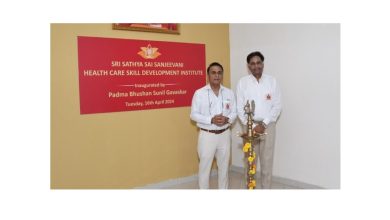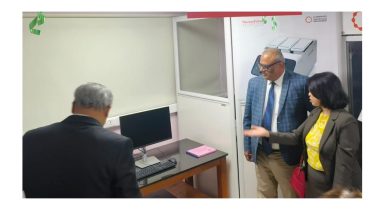Stempeutics Signed Co-Development Agreement with Alkem for Stempeucel®

Stempeutics Research, a group company of Manipal Education and Medical Group (MEMG), announced today that it has signed an out-licensing deal with Alkem Laboratories for Stempeucel® product for OA indication. Out licensing deal comprises of upfront payment, royalties and various regulatory & sales based milestones payments. Under this agreement, Alkem will get the exclusive marketing rights for Stempeucel® in India for Osteoarthritis with Stempeutics manufacturing & supplying the product to Alkem. The product is expected to be available in Indian market by 2020 after undergoing the Phase 3 Clinical trial in India, which is expected to commence in 2018.
Earlier Stempeutics has successfully completed a Phase 2 clinical trial in India & the outcomes have been published in the peer-reviewed indexed journal Arthritis Research & Therapy, UK. Phase 2 trial data showed that a single intra articular injection of Stempeucel® with 25 million cell dose was well tolerated and had positive effects on long term pain reduction and overall improvement in WOMAC scores which measures Pain, Stiffness and Physical Function of the patient.
Commenting on the tie up with Stempeutics Mr Sandeep Singh, MD of Alkem said, “We are pleased to be associated with Stempeutics and the Manipal Group in bringing the next generation of biologics to address unmet medical needs in India. Stempeucel® offers a novel treatment approach to the physicians in India to treat Osteoarthritis Knee and will substantially improve the quality of life of millions of patients suffering from this painful disease”.
Speaking about the Stempeutics tie-up, Mr Satyen Manikani, Vice President, Strategy & Business Development of Alkem said “We are very happy to tie-up with Stempeutics because of their strong domain expertise in developing world class stem cell products. Regenerative medicine is a rapidly emerging area of biomedical research with enormous therapeutic potential worldwide. The launch of Stempeucel® in partnership with Stempeutics will mark Alkem’s foray into this futuristic segment, further strengthening our Pain management franchise.”
Mr BN Manohar, CEO of Stempeutics said, “Current OA treatments are more symptomatic in nature whereas Stempeucel® drug has a potential to address the root cause of the disease. In Phase III trial we are going to administer Stempeucel® using ultrasound guidance and use new MRI techniques called T2 mapping to assess the quality of articular cartilage and also to assess the quantitative analyses of articular cartilage. We are extremely happy to collaborate with Alkem in developing Stempeucel® for OA treatment”.
Speaking on the licensing deal with Alkem, Dr Raviraja, Director Business Development, Stempeutics, said “We are progressing well towards our goal of bringing the first stem cell based product for OA treatment in India in the near future. Allogeneic Stem Cell therapy currently dominates the Global Stem Cells Market with a share of almost 63% compared to the autologous market (37%). The potential for stem cell therapy market in India is approx. US$ 540 million and expected to grow rapidly. While the opportunity is good, it is important that the stem cell therapy is affordable for the common man. Therefore our focus is on to develop innovative production techniques for up scaling and making the product affordable”.
About Osteoarthritis:
Osteoarthritis (OA) is a common and debilitating chronic degenerative disease of large joints, especially the hip and knee, characterized by a loss of articular cartilage, subchondral sclerosis, and marginal osteophyte formation. Worldwide, approximately 9.6% of men and 18% of women aged ≥60 years have symptomatic osteoarthritis. Current treatment in early-stage OA includes weight reduction, quadriceps strengthening exercises, nonsteroidal anti- inflammatory drugs, intra-articular (IA) glucocorticoid injections, viscosupplements, and bracing. Total joint arthroplasty is the mainstay treatment for end-stage OA of the knee joint, which is often associated with serious and life-threatening complications including increased risk of infection. Currently, cell therapy and tissue engineering-based approaches are being used to address the issue of repair of damaged articular cartilage. Allogeneic MSCs are rapidly emerging as an investigational product for cartilage repair. The anti-inflammatory and immunomodulatory properties of MSCs suggest that these cells can reduce inflammation and pain reduction in the knee.




